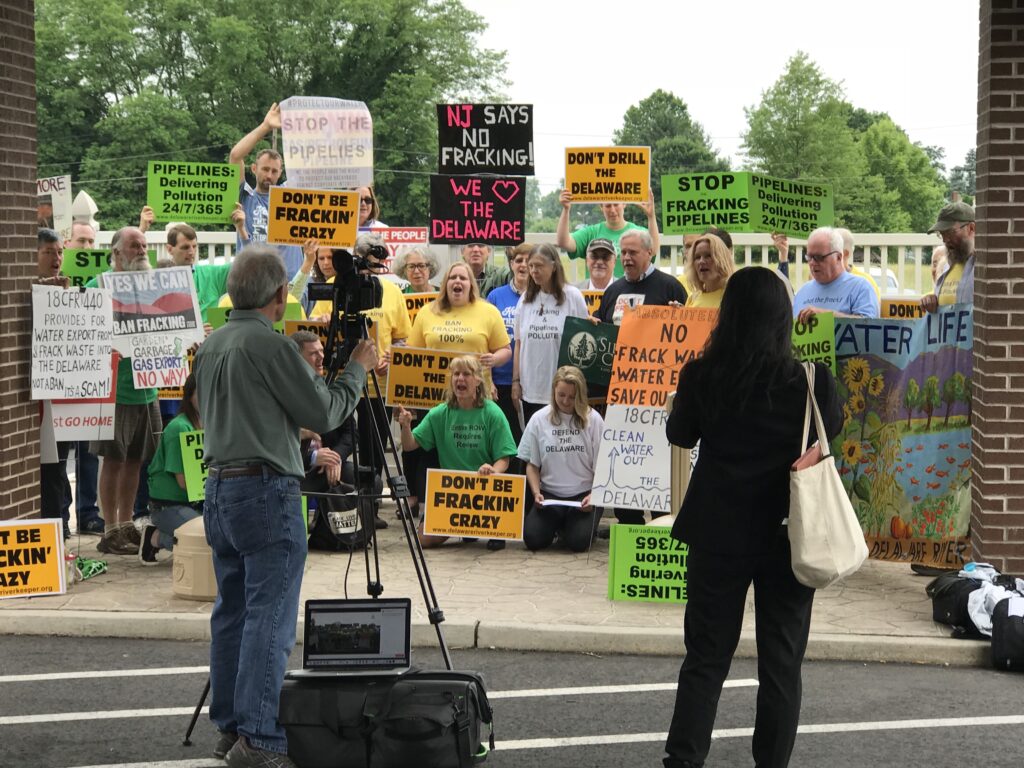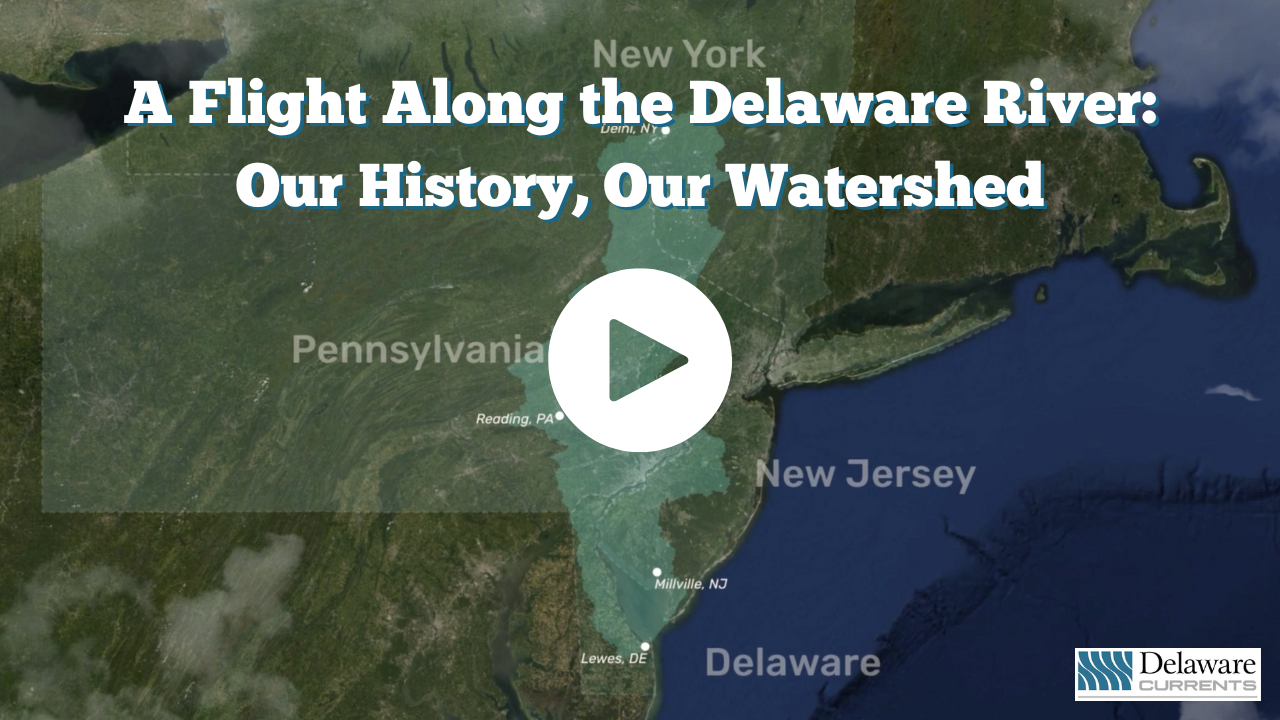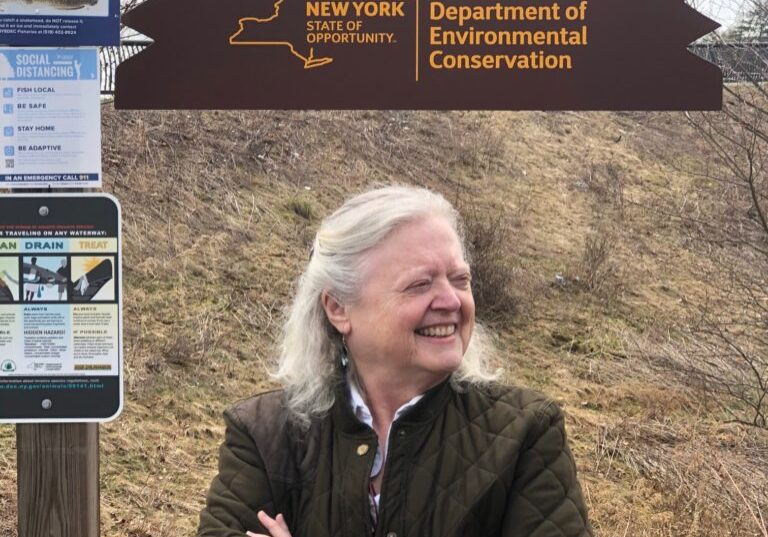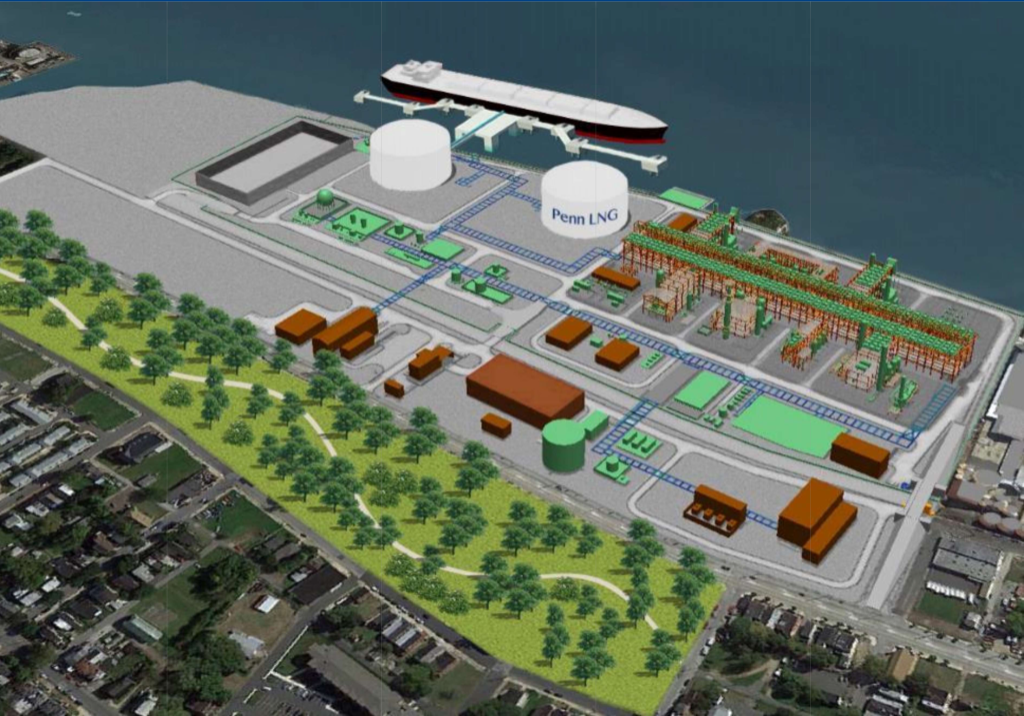
Environmental watchdogs wary of “zombie” pipeline projects
Just when you think a project is dead "they come back and eat your brains," an activist said.
| November 18, 2021
You might have heard the whoop of joy from environmentalists all over the Delaware River watershed on Monday, Sept. 27, as the news seeped out that the PennEast Pipeline was abandoning its seven-year battle to ship fracked Marcellus Shale gas from Pennsylvania across the Delaware River to New Jersey.
Perhaps the loudest cheers came from Pennsylvania and New Jersey, the two states through which the proposed pipeline would cross.
The proposed pipeline’s 116-mile route would have started in Luzerne County, Pa., and run through Carbon, Northampton and Bucks Counties in Pennsylvania, crossing the Delaware south of Riegelsville, Pa., then through Hunterdon and Mercer Counties in New Jersey, where it would have connected with an existing pipeline in Pennington, N.J.
It wasn’t an overnight victory: There were marches and meetings; ingenious protests at the Delaware River Basin Commission meetings and grassroots organizing married with legal actions.
At the heart of things was Lambertville resident Jeff Tittel, who was until recently the director of the New Jersey Sierra Club. You can see him dressed in a black T-shirt standing to the left of Tracy Carluccio, the deputy director of the Delaware Riverkeeper Network — the whole network were stalwarts in the fight.
On her knees in the center of the photo, holding a “DON’T BE FRACKIN’ CRAZY” sign, is the Delaware Riverkeeper, Maya van Rossum. (The slogans and signs were always top notch.)
“We stayed united in our opposition and we won!” was her comment at the time.
Tittel agreed. From the earliest beginning of the fight, Tittel knew that grassroots opposition was key, and that’s what he, van Rossum and Karen Feridun, founder of Berks Gas Truth, worked on, holding meetings in towns where the pipeline would cross.
“We started to organize six years ago in 2014. And used what we learned from fighting other pipelines like the Tennessee Gas Pipeline,” he said.
The lesson from the Tennessee Gas Pipeline Companies Northeast Upgrade Project was harsh.
The environmentalists lost the fight for an injunction to stop the pipeline being built as the case wound its way through the courts.
They won that case, which would have spelled the end of the project. But the company had used the time that the case took to build out the pipeline because it had already had the permissions of the landowners.
By the time the decision came through the pipeline was built.
Tittel said they learned that the important thing was getting residents fired up and ensuring that the pipeline didn’t have access to the land.
“It was like a grassroots prairie fire,” said Tittel, as usual using words that capture his passion for the cause.
Then the municipalities joined in and smaller groups like Bucks Environmental Action poured oil on the flames. When it was done, all groups big and small celebrated each other and the victory.
But the work continues. The ever-vigilant van Rossum and the Riverkeeper Network are not taking any chances, and are pursuing legal action that would make the project well and truly dead. Her suspicion is that projects like these, where significant money can be made, can come back with another name.
“PennEast has not withdrawn its project applications before any of the agencies and FERC has not withdrawn its certification of the PennEast pipeline. Putting this case in abeyance means that PennEast would be free to continue to try to move this project forward through the multiple permitting agencies that still need to provide permits and approvals; and during this time we would be stripped of our ability to challenge the foundational FERC approval that allows this project to remain alive and viable.
“PennEast isn’t saying the project is dead, FERC isn’t saying this project is dead, why on earth would we voluntarily give away our biggest opportunity to drive a stake into the heart of this devastating fossil fuel, fracked gas pipeline?
“That would be just plain stupid,” said van Rossum.
Feridun isn’t so sure that PennEast will revive. There’s been significant legal action that puts the practice of self-dealing into question. “Self-dealing” is used by power companies to urge approval of pipelines, etc. because of a “need” for its products. Often, the need is expressed by the very companies — or affiliates — of the companies pushing the pipeline project.
She’s more concerned right now about a plan proposed by Houston-based Nacero to build a $6 billion plant in Luzerne County, Pa., to convert natural gas to gasoline.
Nacero proposes to produce “tens of thousands of barrels per day of low and zero life-cycle carbon footprint gasoline made from natural gas and renewable natural gas.”
The process is new, and here’s Nacero’s explanation.
It’s being touted as a great source of jobs for the county and a significant step in reducing global warming.
Not so fast, said Feridun, who called the company’s greenwashed marketing “diabolical.” There are significant downsides to the process and even though the project site is not in the Delaware River watershed, she said that it would be likely that pipelines related to the project would have to cross the watershed.
Van Rossum said there are several pipeline projects that the Riverkeeper Network is keeping an eye on, in addition to the “remains” of PennEast:
Adelphia
Adelphia Gateway, LLC, is proposing a project to repurpose an existing pipeline in Southeastern Pennsylvania from oil to natural gas, traversing Northampton, Bucks, Montgomery, Chester and Delaware Counties. More here
Transco Regional Energy Access Expansion Project
The Regional Energy Access Expansion Project is a natural gas expansion project proposed by Transcontinental Gas Pipe Line Company, LLC (Transco), a subsidiary of The Williams Companies, Inc. The proposed project will extend across three Pennsylvania Department of Environmental Protection (DEP) regions: 3 counties in the Northeast Region (Luzerne, Monroe, Northampton), 3 counties in the Southeast Region (Bucks, Chester, Delaware), and 1 county in the Southcentral Region (York). More here
Conemaugh River Crossing Pipeline.
The Conemaugh River Crossing Project is a pipeline replacement project that includes a Horizontal Directional Drilling (HDD) under the Conemaugh River located in Indiana and Westmoreland Counties. More here
Gibbstown LNG export facility
The energy giant New Fortress Energy and its subsidiaries want to transform natural gas at a plant in Wyalusing, Pa., northwest of Scranton, into super-cooled liquid natural gas and transport it by rail or highway to a port in Gibbstown, N.J., about 180 miles away. From the port, it would be shipped overseas. More here
Being an environmental watchdog means you never relax your guard. As Sharon Furlong, spokeswoman for Bucks Environmental Action, warned:
“To me, environmental projects are like zombies. When you think they’re dead, they come back and eat your brains.”


![DC_Image [Image 4_Assunpink Meets Delaware] meets Delaware The Assunpink Creek on its its way to meet the Delaware River. The creek passes through woods, industrial and commercial areas and spots both sparkling and filled with litter.](https://delawarecurrents.org/wp-content/uploads/bb-plugin/cache/DC_Image-4_Assunpink-meets-Delaware-1024x768-landscape-14f069364113da5e8c145e04c9f2367c-.jpg)



